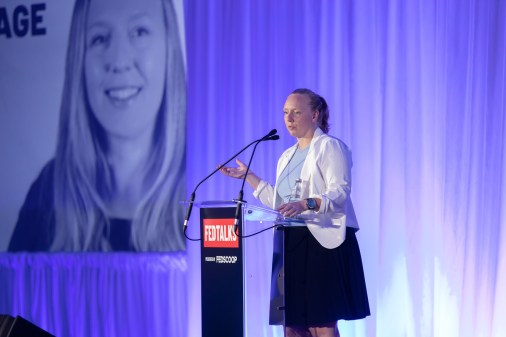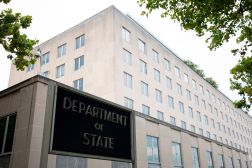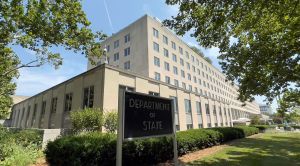From Podgorica, Montenegro to Kiev, Ukraine, the United States has nearly 300 embassies and consulates overseas. A new deal between AT&T and the State Department will ensure that all of them are connected with secure internet protocol telephony.
The Foreign Post Telephone Program, announced Monday, is valued at up to $275 million. The five year deal was awarded through the General Services Administration’s Connections II indefinite delivery, indefinite quantity contract.
“It essentially is a program where AT&T will provide all of the support services to design, engineer, deploy and maintain telephony systems in up to the nearly 300 embassies, posts and consulates overseas,” Stacy Schwartz, vice president of AT&T government solutions, said in a phone interview with FedScoop. “So it’s a mix of service and equipment and design and some pretty interesting locations to support the state department.”
AT&T will design and procure the systems for a mix of new equipment installations and upgrades. In order to roll out this service, security-cleared AT&T techs will need to be on-site at every installation worldwide. The personnel will install, integrate, test and bring these systems online, according to a release.
“Our value proposition was as the State Department looks to evolve its technology, or evolve its future technologies, that we would be there to help do that for them as they steadily change out some of their architecture in embassies,” Schwartz said. “So, trying to get them future-ready for things such as unified communications.”
The company is now beginning the process of talking with the State Department about how it can implement the technology on an international scale.
“We’re just now sitting down with the State Department on what our future planning would be in terms of looking at various regions and locations for some of those unique visits, so that’s really what’s exciting about this,” Schwartz said. “There’s an intent to really rationalize or look at all those disparities across various geographies and how to best deploy the right systems that will have longevity and will position the State Department to use the best technology in the future.”
The State Department did not respond to FedScoop’s request for comment by publication.
“It is a big, very important program if you think about what’s going on in all those embassies,” Schwartz said. “So we’re just really feeling quite proud to have been selected for this.”






